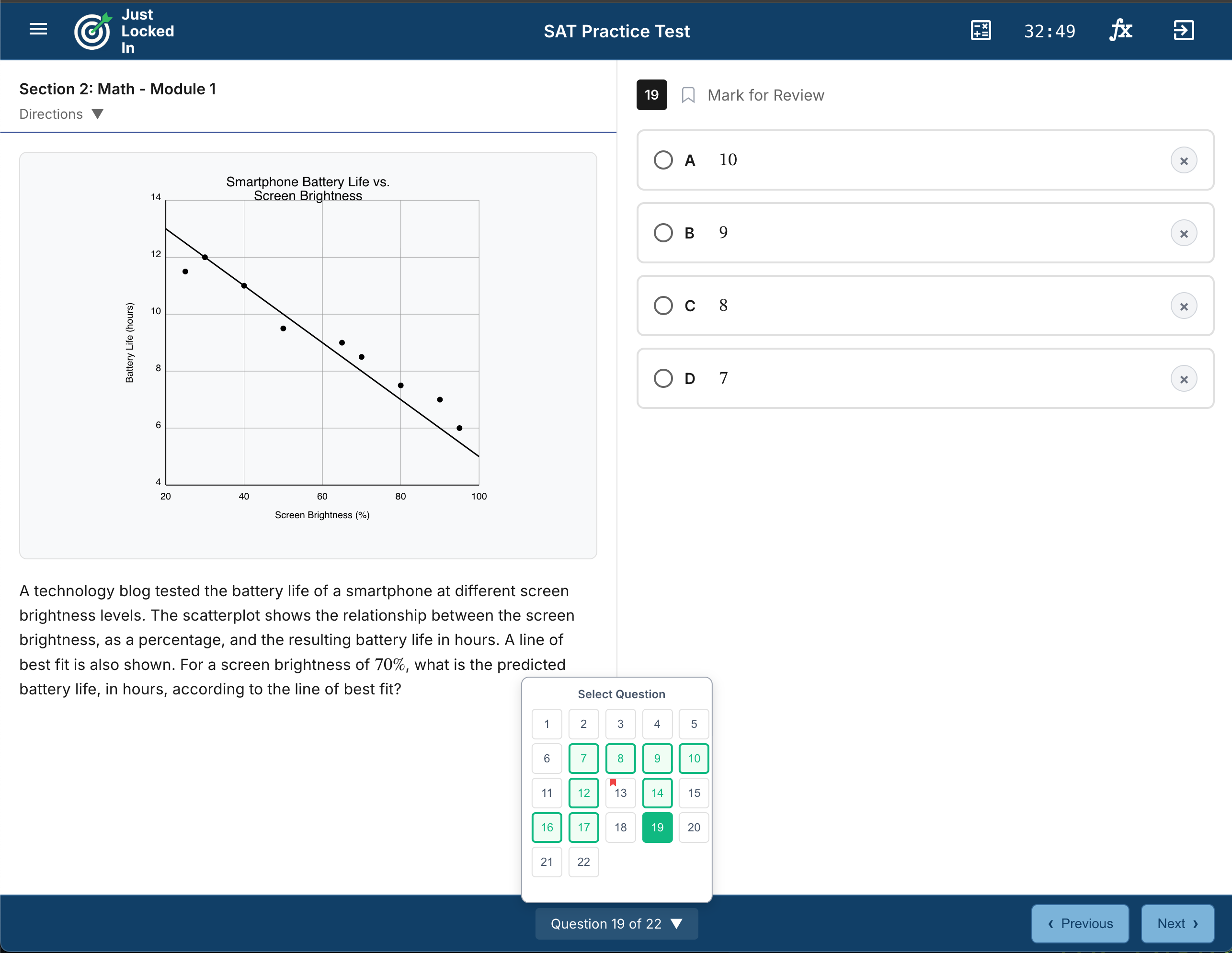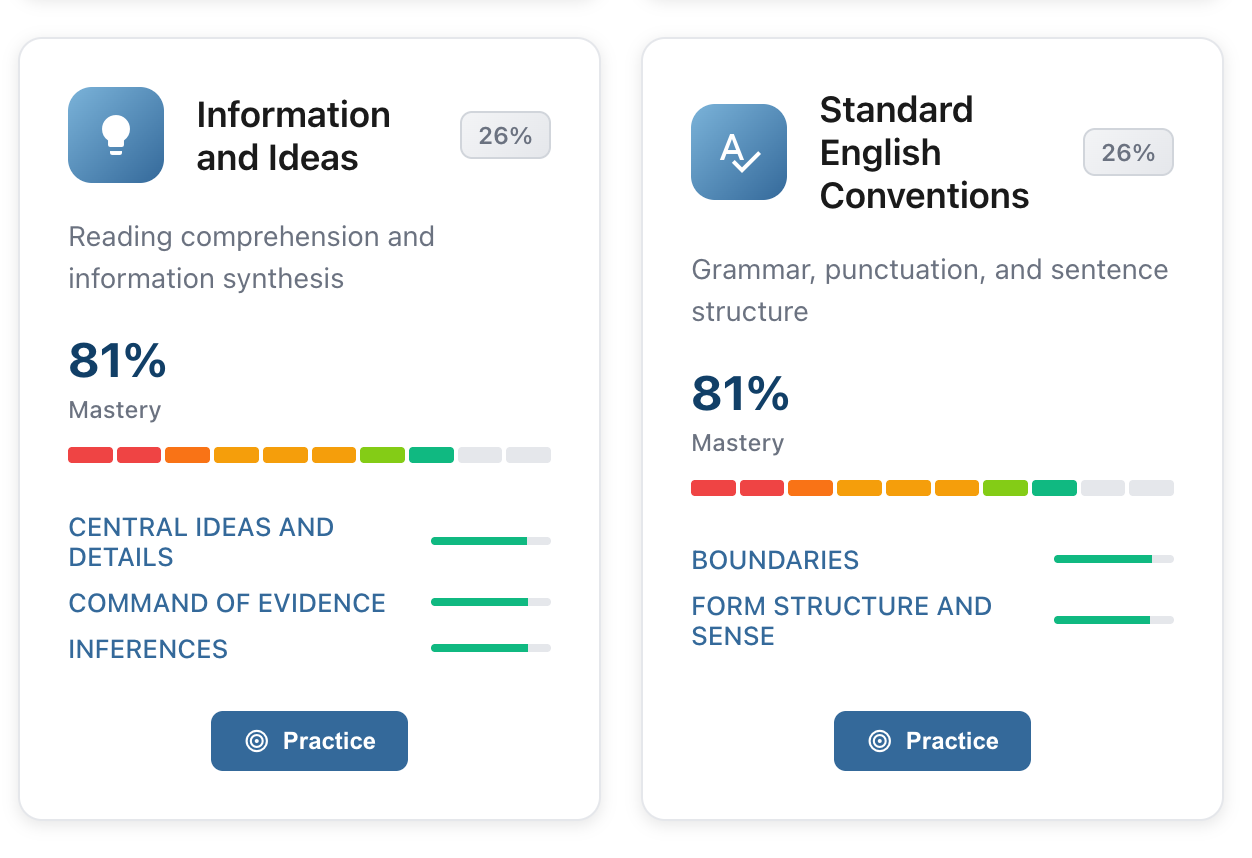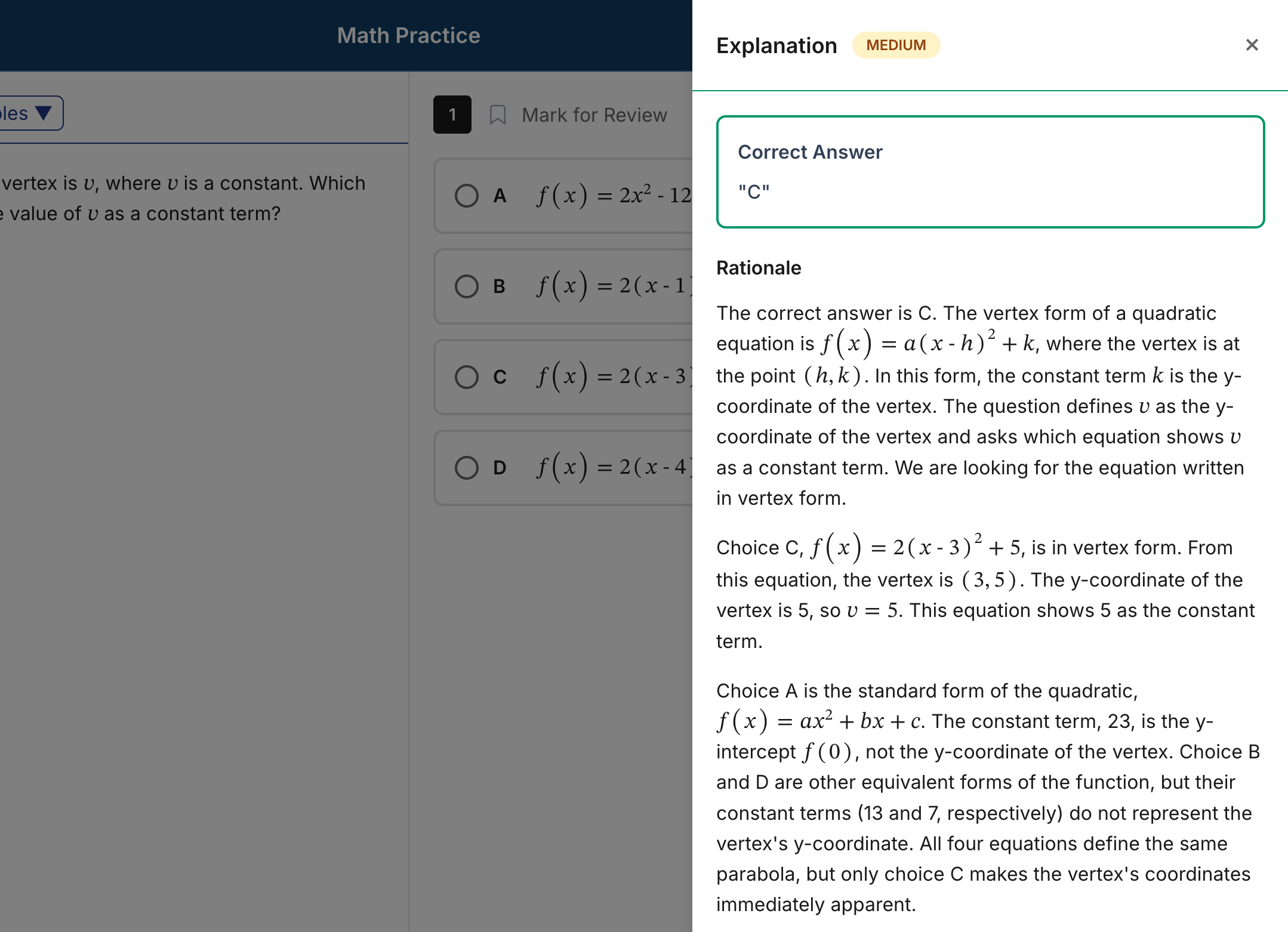Built to Feel Like Test Day

Seamless Test-Day Experience
Our platform mirrors the official Digital SAT interface — including the on-screen timer, embedded Desmos calculator, digital reference sheets, annotation tools, and answer eliminator. Practice in the exact environment you'll test in, so nothing surprises you on test day.

Know Exactly Where You Stand
The LockedIn Score goes deeper than a practice test number. It measures consistency, difficulty progression, and pattern coverage — so you know how ready you actually are for test day, not just how you scored on one practice run.

Go Beyond the "Right" Answer
Don't just learn what the right answer is. Learn why. Our step-by-step explanations show you how to solve each problem — often in multiple ways — and explain why the wrong answers are designed to trap you. This is how you stop repeating mistakes.